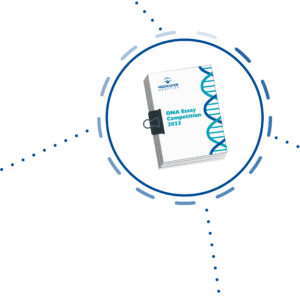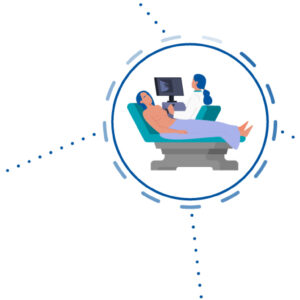Hereditary fructose intolerance (HFI) is a severe autosomal recessive inherited metabolic disorder, which usually manifests in infancy when fruit sugar is added to the diet. There is a diagnostic difference between HFI and fructose malabsorption, which is mainly associated with gastrointestinal symptoms.
Hereditary fructose intolerance leads to severe clinical symptoms when fruit sugar is ingested. Chronic exposure leads to failure to thrive and cirrhosis of the liver. Those affected often develop an aversion to sweet food, which can result in the disease remaining undiagnosed. Pathogenic variants in the fructose-bisphosphate aldolaseB (ALDOB) gene lead to an enzyme deficiency, which in turn leads to an accumulation of the toxic metabolite fructose-1-phosphate when fructose is consumed. The resulting inhibition of gluconeogenesis and glycogenolysis leads to hypoglycaemia with tremors, sweating and coma; there are also gastrointestinal complaints. Four common variants in the ALDOB gene, (p.(Ala150Pro), p.(Ala175Asp), p.(Asn335Lys) and the stop mutation p.(Tyr204*)), are responsible for approximately 85% of HFI cases in the European population; the variants p.(Ala150Pro) and p.(Ala175Asp) are pathogenic in over 50% of the cases. The disease has autosomal recessive inheritance, meaning both alleles must be affected for the enzyme deficiency to manifest clinically. The disease is rare, with an incidence of about 1:20,000 in the western population.
Another form of fructose intolerance with HFI-like symptoms is hereditary fructose-1,6-bis-phosphatase (FBP1) deficiency.
If HFI or FBP1 deficiency remains undetected and untreated, potentially life-threatening complications can occur, especially in infancy, and progressive organ damage can occur with time as the disease course progresses. In addition, treatment with drugs containing fructose, sucrose or sorbitol can lead to severe side effects.
Fructose intolerance can also be the result of disturbances in fructose transport in the intestine (fructose malabsorption) and chronic inflammatory intestinal diseases (e.g., Crohn's disease) (secondary form). These more frequent forms can occur at any age and are not based on a genetic disorder of fructose metabolism. Here, the gastrointestinal symptoms are predominant. In order to ensure targeted diagnostics, it is important to distinguish between the two forms in advance of a genetic examination.
References
Tran 2017, Nutrients 9:pii:E356 / Bijarnia-Mahay et al. 2015, JIMD Rep 19:85 / Ferri et al. 2012, JIMD Rep 6:31 / Grochota et al. 2006, Mol Gen Metab 87:376 / Santer et al. 2005, Hum Mut 6:594 / Sanchez-Gutierrez et al. 2002, J Med Gen 39:5





















